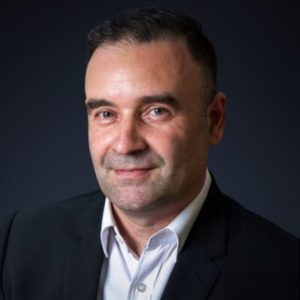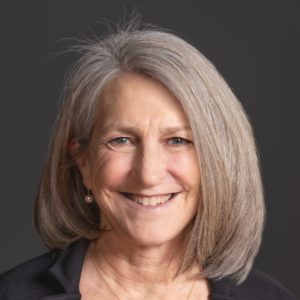Advisory Group
Members
 |
Dr. Alessandro Arduino
Principal Research Fellow, Middle East Institute (MEI), National University of Singapore & Associate, Lau China Institute, King’s College London Dr. Arduino’s two decades of experience in China encompasses security analysis and crisis management. His main research interests include private military and security companies, China, Central Asia and Middle East and North Africa relations, and China’s security and foreign policy. Dr. Arduino is the author of several books and he has published papers and commentaries in various journals in Italian, English and Chinese. His podcast, Boots off the Ground, discusses how uniformed soldiers, or boots on the ground, are being replaced by private military companies and automated weapons. His most recent book is China’s Private Army: Protecting the New Silk Road (Palgrave, 2018). He has been appointed Knight of Order of the Star of Italy by the president of the Italian Republic. |
 |
Dr. Deborah Avant
Director, Sié Chéou-Kang Center for International Security and Diplomacy, Distinguished University Professor and Sié Chéou-Kang Chair, Josef Korbel School of International Studies, University of Denver Dr. Avant’s research has focused on civil-military relations, and the roles of non-state actors in controlling violence and generating governance. She is author/editor of Civil Action and the Dynamics of Violence in Conflicts, The New Power Politics: Networks and Transnational Security Governance; Who Governs the Globe?; The Market for Force: the Consequences of Privatizing Security; and Political Institutions and Military Change: Lessons From Peripheral Wars, along with articles in such journals as International Organization, International Studies Quarterly, International Studies Review, Security Studies, Perspectives on Politics, and Foreign Policy. She was the inaugural Editor-in-Chief of the Journal of Global Security Studies and is President of the International Studies Association (2022-23). She is an Observer Member of ICoCA and, in 2013, was awarded an honorary doctorate from University of St.Gallen for her research and contribution toward regulating private military and security companies. |
 |
Anne-Marie Buzatu
Vice President & Chief Operations Officer, ICT4Peace Foundation Anne-Marie Buzatu is the Vice President and Chief Operations Officer of ICT4Peace Foundation, and is a Member of the Board of the US-based Friends of ICT4Peace Foundation. Previous to this, Ms. Buzatu was Deputy Head of the Public-Private Partnerships Division at DCAF in Geneva where she worked for nearly 12 years. In this role she led, under a Swiss government mandate, the development of the International Code of Conduct for Private Security Service Providers (ICoC), a multistakeholder initiative which set out international human rights compliant principles and standards for the private security industry. She subsequently led the creation of the International Code of Conduct Association (ICoCA), the mutistakeholder oversight mechanism for the ICoC, where she also served as Interim Executive Director. |
 |
Dr. Andrew Clapham
Professor of International Law, the Graduate Institute of International and Development Studies, Geneva Andrew Clapham is Professor of International Law at the Graduate Institute. He was the first Director of the Geneva Academy of International Humanitarian Law and Human Rights (June 2006 – July 2014). He teaches international human rights law, the laws of war, and public international law. Prior to coming to the Institute in 1997, he was the Representative of Amnesty International at the United Nations in New York. Andrew Clapham has worked as Special Adviser on Corporate Responsibility to High Commissioner for Human Rights Mary Robinson, and Adviser on International Humanitarian Law to Sergio Vieira de Mello, Special Representative of the UN Secretary-General in Iraq. He was elected as a Commissioner of the International Commission of Jurists in 2013. He is currently serving as a member of the UN Commission on Human Rights in South Sudan. |
 |
Dr. Gary Corn
Director of the Law, Technology & Security Program, the American University Washington College of Law Gary Corn is the Director of the Technology, Law & Security Program and Adjunct Professor of Cyber and National Security Law at American University Washington College of Law; a Senior Fellow in Cybersecurity and Emerging Threats at the R Street Institute; a member of the Editorial Board of the Georgetown Journal of National Security Law and Policy, a member of the American Bar Association Standing Committee on Law and National Security, and the Founder and Principal of Jus Novus Consulting, LLC. A retired U.S. Army colonel, Corn previously served as the Staff Judge Advocate to U.S. Cyber Command, as a Deputy Legal Counsel to the Chairman of the Joint Chiefs of Staff, the Operational Law Branch Chief in the Office of the Judge Advocate General of the Army, the Staff Judge Advocate to United States Army South, on detail as a Special Assistant United States Attorney with the United States Attorney’s Office for the District of Columbia, and on deployment to the former Yugoslav Republic of Macedonia as part of the United Nations Preventive Deployment Force and as the Chief of International Law for Combined Forces Command, Afghanistan. Corn has published numerous articles, book chapters, and blog posts, including in the American Journal of International Law, The Temple International and Comparative Law Journal, the Vanderbilt Journal of Transnational Law, and on Lawfare, Just Security, Articles of War, and Modern Warfare Institute. He received a JD from the George Washington University, a BA in International Relations from Bucknell University, an LLM in Military Law from the U.S. Army Judge Advocate General’s Legal Center and School, and an MA in National Security Studies from the United States Army War College. He is also a graduate of the Escola de Comando e Estado Maior do Exército do Brasil (Command and General Staff College of the Brazilian Army). |
 |
Dr. Daria Davitti
Associate Professor, Public International Law, Lund University Professor Daria Davitti holds a PhD in Law and LLM (Master in Law, with specialization in Human Rights) from the University of Nottingham (UK) where until 2021 she worked as Assistant Professor in Law and Head of the Human Rights Law Centre’s Forced Migration Unit. She is currently Associate Professor (docent) in Public International Law at Lund University, Faculty of Law (Sweden) where she co-leads the Just Transition project, focusing on sustainability and the implementation of the European Green Deal. Her research, more broadly, focuses on the implementation of international law and international human rights law in complex contexts, such as situations of armed conflict, climate breakdown, forced migration, and humanitarian emergencies. She examines the obligations and responsibility of states, international organizations (including international financial institutions), and private companies operating in such contexts, especially in relation to the privatisation of migration and the relevance of impact investing in refugee responses. Prior to joining academia, Professor Davitti served as a human rights field officer with the United Nations (both the former Department of Peacekeeping Operations, DPKO, and the Office of the High Commissioner for Human Rights, OHCHR), and was deployed in Afghanistan from 2006 to 2009. Her research on Afghanistan has been published in a recent monograph with Hart Publishing (2019) on the protection of the right to water in the context of extractive sector investment. |
 |
Dr. Mohamad Janaby
Assistant Professor, Islamic University, Iraq Dr. Janaby obtained PhD in Law from the University of Aberdeen, School of Law. His PhD thesis analysed “The Legal Regime Applicable to Private Military/Security Company Personnel in Armed Conflicts” and has since been published as a book by Springer. In this thesis, he established the classification of PMSC personnel under International Law (whether they are mercenaries, combatants and civilians) and the legal regulation of PMSCs, including the applicability of Human Rights Law, when these companies are hired to participate in armed conflicts. The methodology used to deal with the research question relies on the type of the clients hiring these companies. The regulations of PMSCs and the classification of their personnel rely on whether they are used by states, UN (as peacekeepers), humanitarian organisations or armed groups. He also holds a Master degree in International Law from the University of Babylon (Iraq) and a Diploma in International Peace Studies from the International University Centre for Peace Missions, Helsinki/Spain. He is an Associate Fellow of Higher Education Academy. |
 |
Dr. Anna Leander
Professor of International Relations/Political Science, Graduate Institute of International and Development Studies, Geneva & Professor of International Relations, Pontifical Catholic University, Rio de Janeiro Anna Leander is Professor of International Relations/Political Science. Since 2013, she has been Professor of International Relations at the Pontifical Catholic University of Rio de Janeiro, where she will continue to teach a few weeks per year. She previously held positions at Central European University in Budapest, the Copenhagen Peace Research Institute, the University of Southern Denmark, the Copenhagen Business School, the Hanse-Wissenschaftskolleg, the Collegio Carlo Alberto and the Judith Reppy Institute for Peace and Conflict Studies at Cornell University. Her research is in International Political Sociology. She has worked extensively with practice theoretical approaches and she has a longstanding interest in the commercialisation of military/security matters. She recently published the Routledge Handbook of Private Security Studies (2016, edited with Rita Abrahamsen) as well as articles in the European Journal of Social Theory, Environment and Planning D: Society and Space, the Leiden Journal of International Law and International Studies Perspectives. Her current research focuses on the politics of digital, aesthetic and legal practices. |
 |
Dr. Sean McFate
Senior Fellow, the Atlantic Council & Professor, National Defense University & Georgetown University, School of Foreign Service Dr. Sean McFate is a Senior Fellow at the Atlantic Council, a Washington DC think tank, and a professor at: Georgetown University’s School of Foreign Service, Syracuse University’s Maxwell School, and the National Defense University. His career began as an officer and paratrooper in the U.S. Army’s 82nd Airborne Division, and then he became a private military contractor. His book The Modern Mercenary: Private Armies and What They Mean for World Order (Oxford Univ Press) examines why private warfare has returned and its implications; Foreign Affairs hailed it as “essential reading.” The New Rules of War: Victory in an Era of Durable Disorder has been translated into ten languages, and was named a “Book of the Year” by The Economist. McFate has written three novels based on his private military experiences. His latest thriller is High Treason, and #1 New York Times bestselling author James Patterson said: “Sean McFate just might be the next Tom Clancy, only I think he’s even better.” McFate has written for the New York Times, Washington Post, The Atlantic, Foreign Policy, War on the Rocks, and similar outlets. He has appeared on CNN’s Amanpour, Morning Joe, Fox and Friends, NPR, BBC, Vice/HBO, and The Discovery Channel. McFate holds a BA from Brown University, MPP from the Harvard Kennedy School of Government, and a Ph.D. in international relations from the London School of Economics and Political Science (LSE). |
 |
Dr. Sorcha MacLeod
Marie Curie Fellow and Associate Professor, University of Copenhagen & Chair, UN working Group on Mercenaries Sorcha MacLeod is a Marie Curie Fellow and Associate Professor at the University of Copenhagen, Denmark. She is an international human rights lawyer with an expertise in business, human rights and security. Previously, she was a Lecturer in Law at the School of Law at the University of Sheffield, UK and a Visiting Professor at Free University Berlin. She holds a PhD in International Human Rights Law from the University of Glasgow, as well as an LLM in International Natural Resources Law and an LLB (Hons) in Scots Law from the University of Dundee. She has a particular research interest in the private military and security industry and she has published widely on this topic. In July 2018 she was appointed as an independent human rights expert to the United Nations Working Group on the use of Mercenaries, which is part of the Human Rights Council’s Special Procedures. She is also an invited expert to the UN Open-ended Intergovernmental Working Group on private military and security companies and she participated in the drafting of the Montreux Document on PMSCs, as well as the International Code of Conduct for Private Security Providers. She has Observer Status at the International Code of Conduct Association. |
 |
Dr. Anna Powles
Senior Lecturer, Centre for Defence and Security Studies, Massey University Dr Anna Powles is a Senior Lecturer at the Centre for Defence and Security Studies, Massey University, and Non-Resident Fellow at the U.S. based National Bureau for Asian Research. Powles’ research focuses on Pacific security and geopolitics and her current projects and publications examine strategic competition, alliance dynamics, security cooperation and crisis management, and non-state security actors. She has a particular research interest in the privatisation of security, is the co-lead on a project examining the privatisation of security in the Pacific, and has consulted for the United Nations Development Program as a subject matter expert on private security sector governance in the Pacific, conducting the first region-wide mapping of private security actors; and as a security sector reform specialist in Timor-Leste. She is an Associate Scholar at the MacMillan Brown Centre for Pacific Studies, University of Canterbury, and has been a visiting scholar at the Honolulu-based East-West Center in 2019 and at the Asia Pacific Center for Security Studies in 2014. Prior to joining Massey University, Powles worked in conflict and humanitarian emergencies in Southeast Asia and the Pacific including with the International Crisis Group, the United Nations Development Programme, and the Australian Civil-Military Centre; and humanitarian organisations including Oxfam, AUSTCARE (now ActionAid Australia), World Vision and the Norwegian Refugee Council. She has previously been a member of the New Zealand Institute of International Affairs Standing Committee (2019-2021); the New Zealand representative on the NATO Civil Society Advisory Group (2015-2016); and in 2014 founded the New Zealand chapter of Women In International Security. |
 |
Dr. Anita Ramasastry
Henry M. Jackson Professor of Law & Director, Sustainable International Development Graduate Program, University of Washington School of Law & Vice Chair, UN Working Group on Business and Human Rights Anita Ramasastry is the Henry M. Jackson Professor of Law and the Director of the Sustainable International Development Graduate Program at the University of Washington School of Law. She is an expert in the fields of anti-corruption, commercial law, sustainable development and business and human rights. She is one of the leading academics and a pioneer in the field of business and human rights. She currently serves as the Vice Chair of the United Nations Working Group on Business and Human Rights, having been appointed as a rapporteur by the United Nations Human Rights Council in 2016. Ramasastry is also a founding co-editor in chief of the Business and Human Rights Journal, published by Cambridge University Press. She is the Co-President of the Global Business and Human Rights Scholars Association and launched its annual research scholars forum. |
 |
Dr. Zhou Zhanggui
Director of OSS International Collaboration Mechanism (Center) & Senior Research Fellow, Overseas Safety and Security Programs, NTS-PD, Zhejiang University Dr. Zhou Zhanggui, is Senior Research Fellow of Overseas Safety and Security Programs, NTS-PD, Zhejiang University. He was the Program Officer, at International Center on small hydropower, United Nations Industrial Development Organization (October 2005 – July 2011). He co-founded the International Forum on Non-Traditional Security (Hangzhou) and the Overseas Safety and Security International Collaboration Mechanism (Center) and chaired the secretariats. He also served as Mentor of Global Competency Center at Zhejiang University and Judge of All China Universities Contests of Future Elites for International Organizations (since 2019). His main research focus on non-traditional security risk management. He has published books and papers on Non-Traditional Security including energy, environment and climate security, private security, etc. translated cored documents of private security standards into Chinese including ICoCA core documents and ISO 18788, etc. |
 |
Charlie Mayne
Managing Director, VSC Security Solutions Charlie Mayne is one of the founders of VSC Security Solutions. For over 15 years he has been at the very heart of building a company focused on providing services relevant to the environment and applicable to organisation’s specific areas of operations. He was a member of the ICoCA Board for six years and is committed to helping organisations adopt a responsible approach to security. This experience has shown him that security can be a real operational enabler. However, it is most effective when it works in unison with extensive internal and external stakeholder engagement, which builds trust and seeks to do good wherever possible. Before founding VSC, Charlie was an Officer in the British Royal Marines. His career included operational, training and management roles, and it was in the Marines that he developed his leadership skills and learnt the importance of detailed planning. Mr. Mayne has an MSc in Behavioural Sciences from the London School of Economics, a PG Dip in Security and Risk Management from the University of Loughborough, and a Bachelor of Engineering degree from Edinburgh University. |
 |
Beatrice Godefroy
Public Policy Engagement Director, Climate Action Accelerator A seasoned professional in human security, Beatrice brings to the Advisory Group of the ICOCA her 20 year experience in the area of public policy, research, strategic management, and project development with a commitment to improve the fate of populations caught in conflicts. Currently Public Policy Engagement director at the Climate Action Accelerator focusing on amplifying the climate transition of the aid sector, she has been deployed over the years in multiple conflict-affected countries, and served in several leadership roles at Médecins Sans Frontières (MSF) including as Deputy Executive Director at MSF Switzerland, and as International Coordinator for Advocacy, Operations, and Representation (MSF International) where she headed MSF’s humanitarian diplomacy team. Most recently, Beatrice was Europe Director at the Center for Civilians in Conflict (CIVIC), in charge of CIVIC’s engagement with European Governments, the European Union, and NATO in view of promoting better policies and practices to improve the protection of civilians. She also oversaw CIVIC’s program in Ukraine and in the region. Beatrice served as Board Director representing civil society at the International Code of Conduct Association for Private Security Providers (ICoCA) from 2018 to 2023. She also sits at the Board of the Groupe URD, and is a member of the She Changes Climate Network. |
